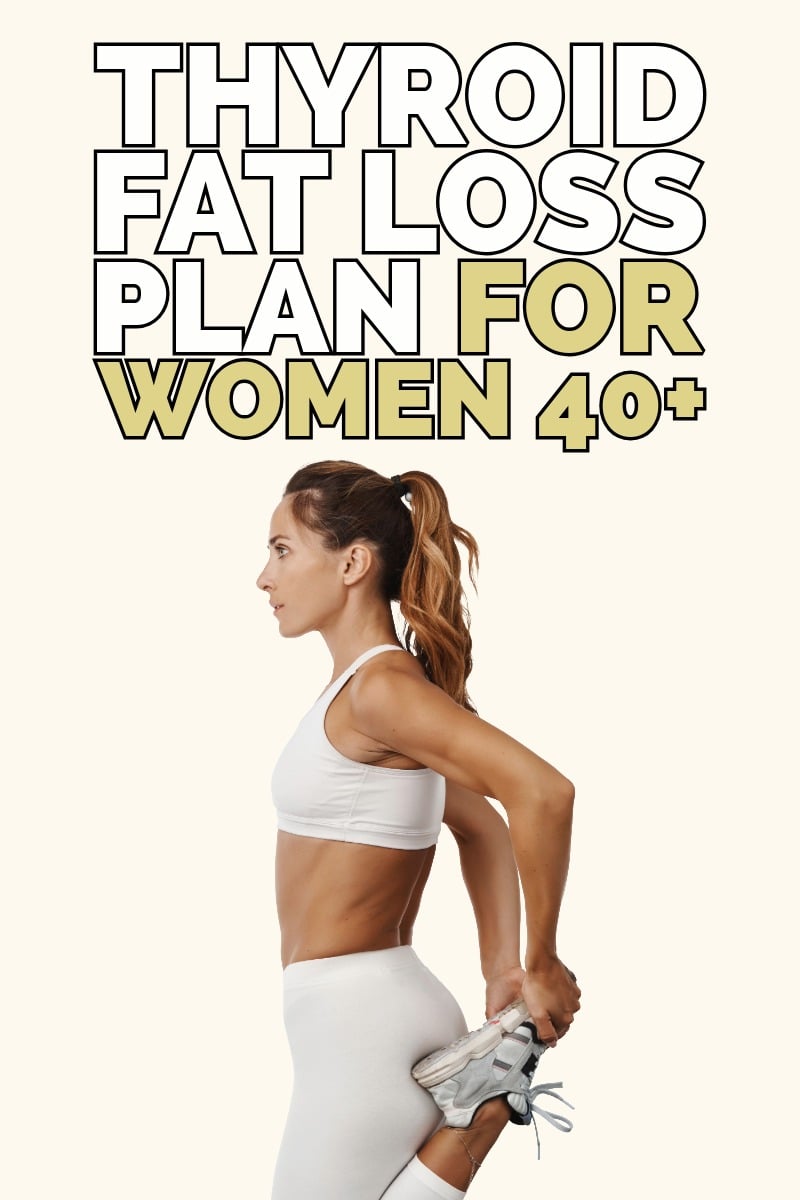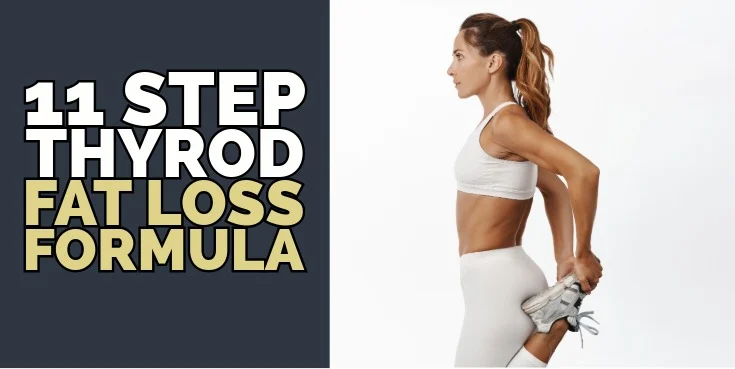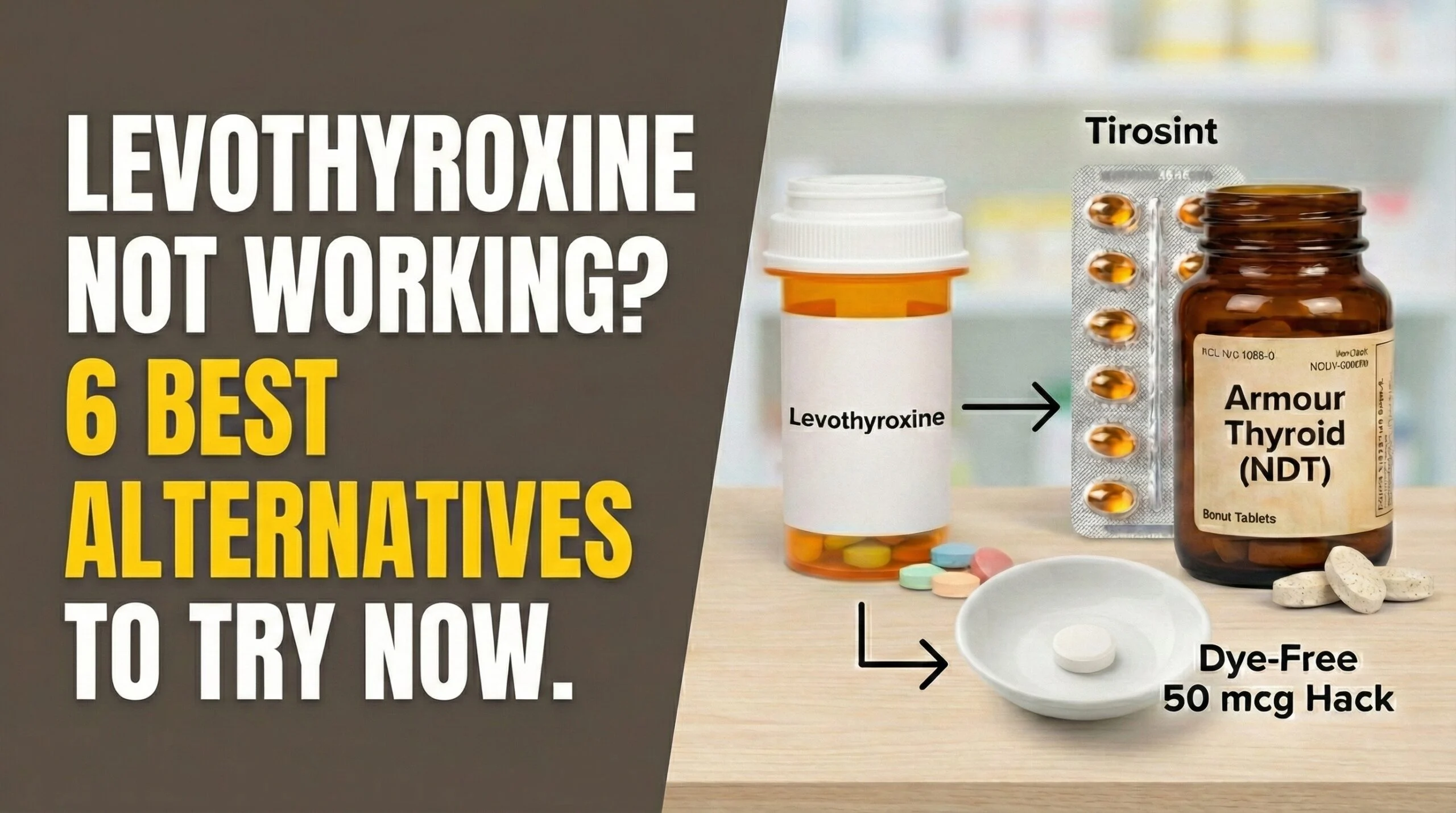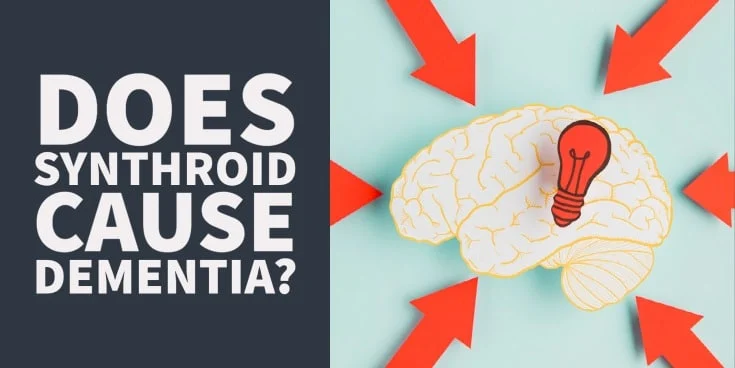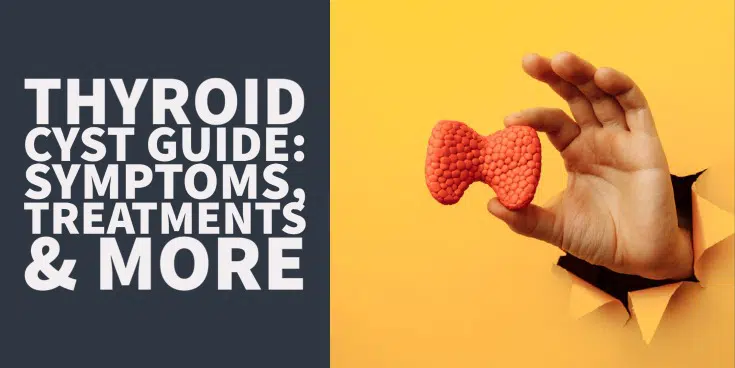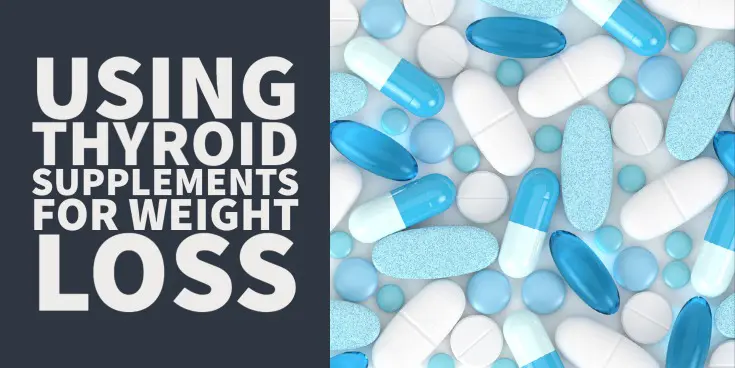Fat loss is slower if you have thyroid issues, but it’s always possible as long as you have the right approach.
I created this formula based on working with thousands of thyroid patients, and it works 90% of the time:
- 0 alcohol
- 8,000 steps daily
- 5 grams of creatine
- 90% whole food diet
- 100 grams of protein daily
- 100 hours of fasting monthly
- 100 mcg of 3,5 diiodo-l-thyronine
- 100 grams of carbohydrates daily
- 100 minutes of zone 2 training weekly
- 6 hours of sleep minimum (but aim for 7)
- 1 full-body strength training session weekly
The other 10%? You’ll likely need a couple of extra tweaks, but I will get to that.
Here’s why this formula works:
0 alcohol
No exceptions. If you want your thyroid to do its job, you have to cut out alcohol 100%.
Why?
Because alcohol is really just a poison to both your thyroid gland and your pituitary gland.
When taken, it disrupts the connection between the two, adds unnecessary calories to your diet, and slowly destroys your liver (which is critical for thyroid conversion).
8,000 steps daily
One of the most underrated fat loss tools for thyroid patients is simply walking.
You may think you have to do sprints or burpees to lose weight, but that’s not the case.
Good old walking can do the trick.
This low level of intensity still stimulates your thyroid gland while keeping your cortisol low.
It will also help you drain out extra fluid caused by your thyroid problem, helping you feel slimmer in your clothes.
5 grams of creatine
Creatine isn’t just for bodybuilders.
It’s for anyone who wants better brain health, more muscle mass, and more energy.
And if you’re a thyroid patient trying to lose weight, you should want them all.
It works by providing your cells with an immediate source of energy (1).
The more energy they have, the better they can do their job.
In a practical sense, this means your workouts will be more efficient, your brain will be clearer, and you will have energy to get up and go.
I recommend that all thyroid patients use 2.5 to 5 grams of creatine monohydrate each day.
Here’s the product I recommend for thyroid patients (use 1 scoop per day)
90% whole food diet
Diet isn’t everything when it comes to thyroid weight loss, but there’s no way you will be able to get to your desired weight without a clean diet.
The harsh truth is that thyroid patients have to be more disciplined when compared to someone who doesn’t have a thyroid problem.
This means 90% of the time, your diet needs to consist of real, whole foods.
The other 10%? Well, you can have a little bit of fun, but don’t go overboard because you will end up paying for it.
Need help eating right? Try this 7-day meal plan + shopping list.
100 grams of protein daily
More protein means more muscle mass, and more muscle mass means better thyroid function.
But most thyroid patients miss out on this benefit because they undereat protein.
100 grams of protein per day is enough to both maintain your existing muscle mass while also stimulating additional muscle growth.
You’re not aiming to be a bodybuilder, you’re aiming to be lean and mean.
*Thyroid tip: Need help getting more protein? Use 2-3 servings of pea protein each day (this will get you to 40-60 grams in no time). Here’s my recommended thyroid-safe protein powder.
100 hours of fasting monthly
Hands down, the best way to reduce calorie intake for thyroid patients is fasting.
Unlike daily calorie restriction, fasting (which is a form of intermittent calorie restriction) does NOT cause metabolic damage, lower free T3, or increase reverse T3 (2).
100 hours of fasting equate to an average daily calorie reduction of 250 calories, which is enough to help you lose weight while also keeping your thyroid healthy.
Break this down into 1, 24-hour fast each week, and you’re good to go.
100 mcg of 3,5 diiodo-l-thyronine
3,5 diiodo-l-thyronine is another name for T2 thyroid hormone.
And T2’s primary job is to regulate fat breakdown, metabolism, and energy production.
T2 is naturally created from the breakdown of T3 thyroid hormone.
But because most thyroid patients don’t have enough T3, they don’t create enough T2.
The good news is that T2 is available over the counter in 100 mcg capsules, and it can be taken and added to all thyroid medications and hormones.
Combine 100 mcg of T2 with whatever you’re currently taking to rev up your metabolism.
You can get bio-identical T2 in capsule form here or bio-identical T2 in cream form here (both options work).
100 grams of carbohydrates daily
Too few carbs will tank your thyroid and your metabolism.
Too much will trigger inflammation and make you fat.
What matters most for thyroid patients is a combination of quality and quantity.
Quantity is the easy part; your thyroid thrives on 100 grams per day. This will help your body convert T4 into T3 more easily, fuel your body, and keep your cortisol balanced.

Quality is where most people get confused.
What you need to know is this:
Processed carbs are bad, and whole food carbs are good (yes, even fruit and 100% fruit juices).
100 minutes of zone 2 training weekly
All levels of exercise intensity will improve thyroid function (3) and help you lose weight.
But one stands above the rest:
Zone 2 training.
Not only will exercising at 60-70% of your maximum intensity boost your thyroid, it’s also sustainable long-term, easy on the adrenals, and refreshing to the body.
Get 100 minutes of zone 2 training each week, and your metabolism and thyroid will thank you.
Here’s how to find that rate for you:
Take 220 and subtract your age. This will give you your maximum heart rate.
Then multiply this value by .6 or .7. This will give you 60% or 70% of your maximum heart rate.
Hit somewhere in between these values when you exercise, and you’re set.
6 hours of sleep minimum (but aim for 7)
Health gurus will tell you that you need 8+ hours a night if you want to be healthy.
I’m here to tell you that it’s not quite that simple.
Is sleep important? Absolutely.
But killing yourself trying to get 8 hours can actually make your sleep worse, especially if you have thyroid insomnia.
Research shows that the cutoff is 6 hours per night.
Less than this results in changes to TSH, T3, and reverse T3.
Anything more is great, if you can get it, but stressing over 8 hours can backfire.
If you want to fix thyroid insomnia, look into CBT-I (4). It’s the most effective sleep therapy that I know of.
You can also find 12 sleep-boosting tips that I personally use here.
1 full-body strength training session weekly
Cardio exercise is great, but if you want your body composition to change, you also need resistance training.
More muscle = more calories burned at rest and better thyroid hormone activity.
And you don’t need to be a bodybuilder to get these benefits. You just need 1 full-body resistance training session each week.
For this session, focus on compound movements like squats, rows, hip thrusts, deadlifts, and lunges.
These will trigger a release of growth hormone (5) and testosterone, help you build lean muscle mass, and provide a boost to your thyroid.
For the 10% Who Need More
If you’ve followed this formula and you’re not seeing results, you’re one of the 10% who’s going to need a little extra boost.
For this group, the missing piece is usually T3.
T3 provides a direct boost to metabolism, can be easily added to any thyroid medication, and works quickly.
Start with a T3 dose that is roughly 20% of your total T4 dose and work from there.
Optimize your thyroid medication until you see a combination of symptom control, steady weight loss, improved leptin levels, and a better free T3: reverse T3 ratio.
Final Thoughts
Weight loss is slower with thyroid issues, but it’s always possible.
The key is to stay consistent and to track changes over WEEKS and MONTHS, not days.
And remember:
The scale often lies, especially for thyroid patients.
It’s probably the worst way to measure and track your weight loss.
If you want to do it correctly, check out this article next.
Scientific References
#1. https://pmc.ncbi.nlm.nih.gov/articles/PMC7910963/
#2. https://pmc.ncbi.nlm.nih.gov/articles/PMC4989512/
#3. https://pubmed.ncbi.nlm.nih.gov/16380698/
#4. https://pmc.ncbi.nlm.nih.gov/articles/PMC6796223/
#5. https://pubmed.ncbi.nlm.nih.gov/12797841/
